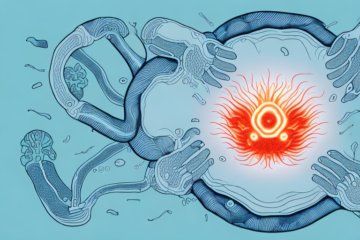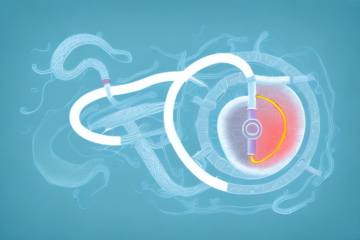Gluten is a protein found in several types of grains, including wheat, barley, and rye. It provides elasticity and helps hold shape in baked goods. However, for some individuals, consuming gluten can cause adverse reactions. In this article, we will explore what gluten is, where it’s found, and the health conditions associated with it.
What Is Gluten and Where Is It Found?
As mentioned earlier, gluten is a protein that’s commonly found in many grains, including wheat, barley, and rye. It’s also commonly added to processed foods such as sauces, dressings, and soups. Gluten can also be found in common items such as vitamins and medications, and even beauty products.
Gluten is not only found in food products, but it can also be present in non-food items such as playdough, which is often made with wheat flour. Additionally, some types of alcohol, such as beer, are made with gluten-containing grains and can be problematic for those with gluten sensitivities or celiac disease.
It’s important to note that not all grains contain gluten. Some gluten-free grains include rice, quinoa, and corn. However, cross-contamination can occur during processing or preparation, so it’s important to read labels carefully and choose certified gluten-free products if necessary.
Celiac Disease: Understanding the Basics
Celiac disease is an autoimmune disorder that affects approximately 1% of the population. When individuals with celiac disease consume gluten, their immune system attacks the small intestine, which can lead to a range of symptoms such as bloating, diarrhea, and weight loss. Over time, consuming gluten can cause damage to the villi, small hair-like structures in the small intestine that are responsible for absorbing nutrients from food.
It is important for individuals with celiac disease to follow a strict gluten-free diet in order to manage their symptoms and prevent further damage to their small intestine. This means avoiding foods that contain wheat, barley, and rye, as well as any products that may have come into contact with gluten during processing. It is also important for individuals with celiac disease to work closely with a healthcare provider and a registered dietitian to ensure they are getting all the necessary nutrients in their diet.
Gluten Sensitivity vs. Celiac Disease: What’s the Difference?
While celiac disease and gluten sensitivity share many symptoms, they are different conditions. Gluten sensitivity is a non-celiac condition in which individuals experience similar symptoms to celiac disease, but without the autoimmune response in the small intestine.
However, it is important to note that individuals with gluten sensitivity may still experience significant discomfort and digestive issues when consuming gluten-containing foods. In contrast, celiac disease is an autoimmune disorder in which the body’s immune system attacks the small intestine when gluten is consumed, leading to damage and potential long-term health complications.
The Signs and Symptoms of Gluten Intolerance
The signs of gluten intolerance can vary widely among individuals, ranging from gastrointestinal symptoms such as bloating, constipation, and nausea, to neurological symptoms such as migraines, brain fog, and anxiety.
Other common symptoms of gluten intolerance include skin rashes, joint pain, fatigue, and unexplained weight loss or gain. It is important to note that some people with gluten intolerance may not experience any noticeable symptoms at all, making it difficult to diagnose without proper testing.
How to Get Tested for Gluten Sensitivity or Celiac Disease
If you suspect that you may have an issue with gluten, it’s important to get tested. Celiac disease can be diagnosed through blood tests, along with a biopsy of the small intestine. Gluten sensitivity can be harder to diagnose, but elimination diets can help identify possible triggers.
It’s important to note that if you suspect you have a gluten sensitivity, it’s best to not start a gluten-free diet before getting tested. This is because eliminating gluten from your diet can affect the accuracy of the tests. It’s recommended to continue eating gluten until all testing is complete. Additionally, it’s important to consult with a healthcare professional before making any dietary changes or starting any new testing.
Going Gluten-Free: Tips for Starting a Gluten-Free Diet
For individuals diagnosed with celiac disease or gluten sensitivity, the only treatment is a gluten-free diet. This can feel overwhelming at first, but there are many gluten-free alternatives available. It’s important to read labels carefully and to be aware of hidden sources of gluten in everyday items such as soy sauce and beer.
It’s also important to note that going gluten-free doesn’t necessarily mean a healthier diet. Many gluten-free products are highly processed and contain added sugars and fats. It’s important to focus on whole, unprocessed foods such as fruits, vegetables, lean proteins, and gluten-free grains like quinoa and brown rice. Consulting with a registered dietitian can also be helpful in ensuring a balanced and nutritious gluten-free diet.
Common Foods That Contain Hidden Gluten
As mentioned earlier, gluten can be found in surprising places. Oats, for example, are naturally gluten-free but can become contaminated with gluten during processing. Soy sauce is another surprising source of gluten, as are many processed meats and sausages.
Other common foods that may contain hidden gluten include certain types of candy, such as licorice and some chocolate bars. Additionally, some types of beer and malt beverages contain gluten, as do many types of pre-packaged soups and sauces.
It’s important to carefully read food labels and ingredient lists to identify potential sources of gluten. Some products may be labeled as “gluten-free,” but it’s still important to check the ingredients to ensure they don’t contain any hidden sources of gluten.
The Benefits and Risks of a Gluten-Free Diet
While a gluten-free diet is essential for individuals with celiac disease or gluten sensitivity, there is little evidence that it provides health benefits for the general population. In fact, many gluten-free products are highly processed and contain added sugars.
However, a gluten-free diet can be beneficial for individuals with certain autoimmune disorders, such as rheumatoid arthritis and lupus. These conditions have been linked to gluten intolerance and eliminating gluten from the diet may help reduce inflammation and improve symptoms.
Living with Celiac Disease: Coping Strategies and Support Resources
Celiac disease can be a challenging condition to live with. It can make social situations difficult, and the gluten-free diet can be expensive and time-consuming. However, there are many support resources available, including online support groups and local celiac disease organizations.
One coping strategy for living with celiac disease is to plan ahead when it comes to meals and social events. Bringing your own gluten-free snacks or meals to events can help ensure that you have safe options to eat. Additionally, it can be helpful to educate friends and family members about celiac disease and the importance of avoiding cross-contamination when preparing food.
Cooking and Eating Out Without Gluten: Practical Tips and Recipes
Eliminating gluten from your diet doesn’t have to mean boring meals or eating at home every night. Many restaurants now offer gluten-free options, and there are many creative recipes available for gluten-free cooking at home. Some simple substitutions, such as using rice, corn, or quinoa flour in place of wheat flour, can make a big difference.
When cooking at home, it’s important to read labels carefully and avoid any products that contain gluten. This can be challenging, as gluten can be found in unexpected places such as soy sauce, salad dressings, and even some types of candy. However, there are many gluten-free alternatives available, and with a little research, you can easily find substitutes for your favorite foods.
It’s also important to be aware of cross-contamination when eating out. Even if a restaurant offers gluten-free options, there is still a risk of cross-contamination if the food is prepared in the same area as gluten-containing ingredients. It’s always a good idea to inform your server of your dietary restrictions and ask about their preparation methods to ensure that your meal is truly gluten-free.
Debunking Common Myths About Gluten and Health
There are many misconceptions about gluten and its impact on health. One common myth is that a gluten-free diet can help with weight loss or boost athletic performance. There is little evidence to support these claims, and in fact, a poorly planned gluten-free diet can lead to nutrient deficiencies.
Another common myth is that gluten is inherently bad for everyone and should be avoided at all costs. While some people have a medical condition called celiac disease that requires them to avoid gluten, the majority of people can consume gluten without any negative health effects. In fact, many gluten-containing foods are important sources of nutrients like fiber, iron, and B vitamins.
It’s also important to note that gluten-free products are not necessarily healthier than their gluten-containing counterparts. In many cases, gluten-free products are highly processed and contain added sugars and fats to improve their taste and texture. It’s always best to choose whole, unprocessed foods whenever possible, regardless of whether they contain gluten or not.
The Future of Gluten-Free Living: Advances in Research and Treatment
As our understanding of celiac disease and gluten sensitivity continues to evolve, researchers are working to develop new treatments and therapies. One promising area of research is the use of enzymes to break down gluten in the small intestine before it can cause harm.
In conclusion, gluten can cause health problems for some individuals, but a gluten-free diet is not necessary or beneficial for everyone. If you suspect that you may have an issue with gluten, it’s important to get tested and to seek support and resources to help manage the condition.
Another area of research is focused on developing vaccines to prevent celiac disease. These vaccines would work by training the immune system to tolerate gluten, rather than attacking it. While still in the early stages of development, this approach shows promise for potentially preventing celiac disease altogether.
Additionally, there is ongoing research into the use of probiotics to help manage gluten sensitivity. Probiotics are live bacteria and yeasts that are beneficial for digestive health. Some studies have shown that certain strains of probiotics may help reduce symptoms of gluten sensitivity, although more research is needed to fully understand their effectiveness.










